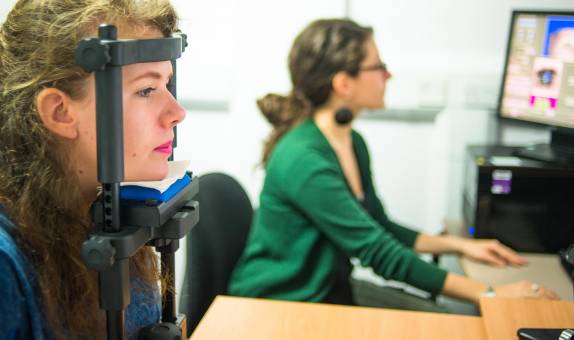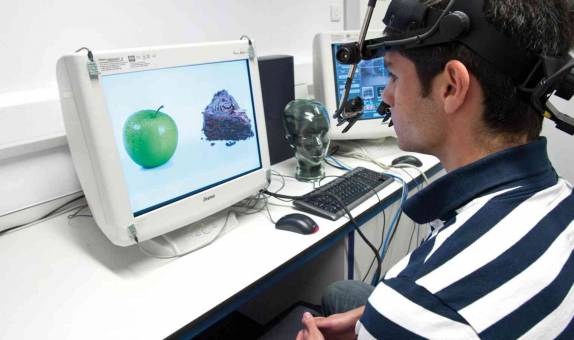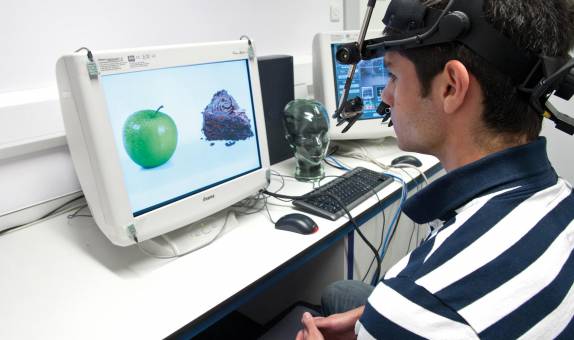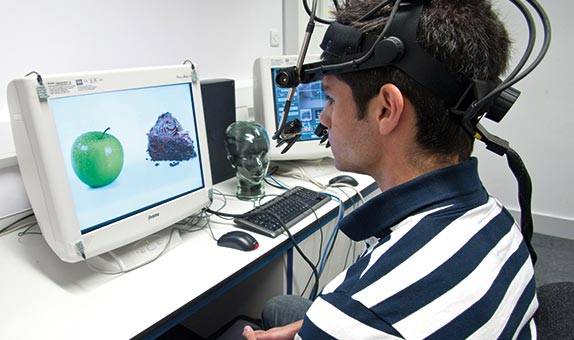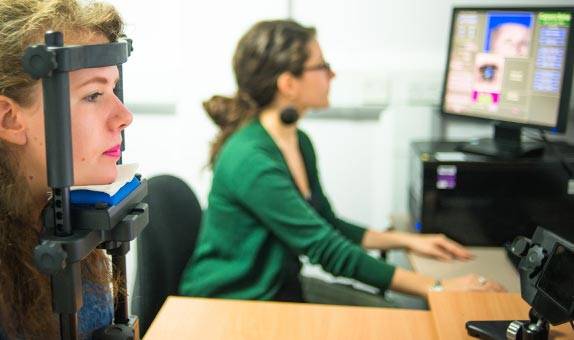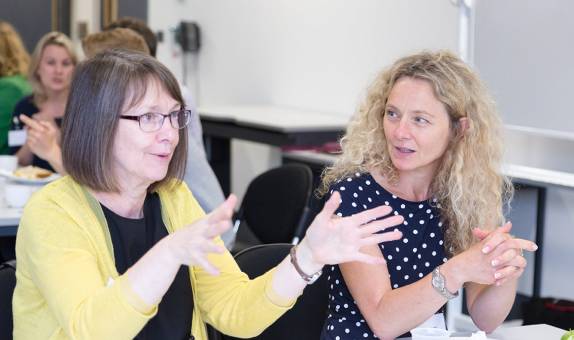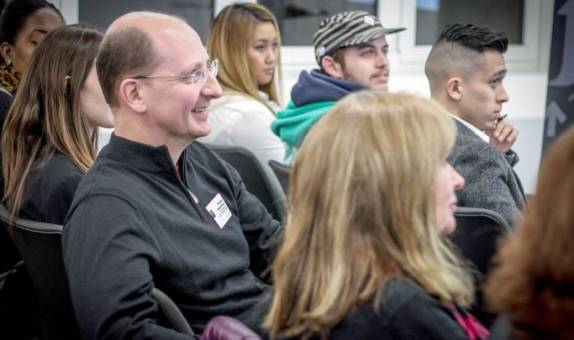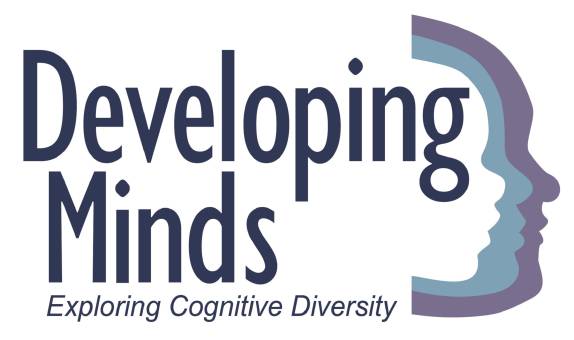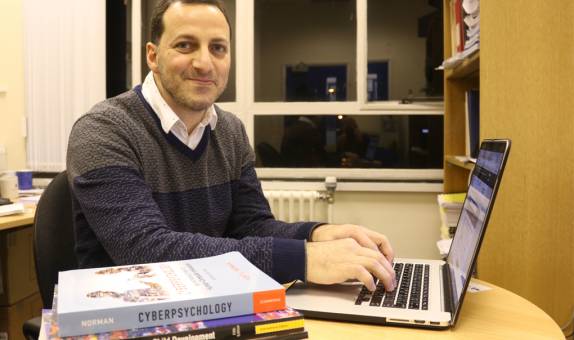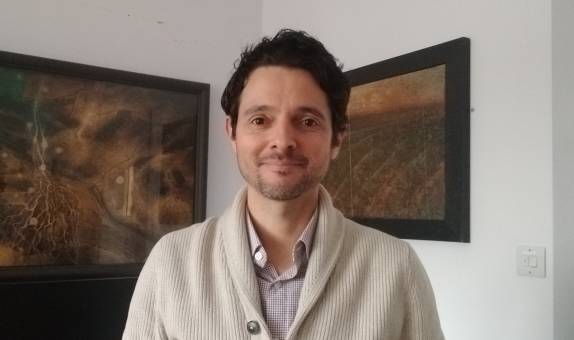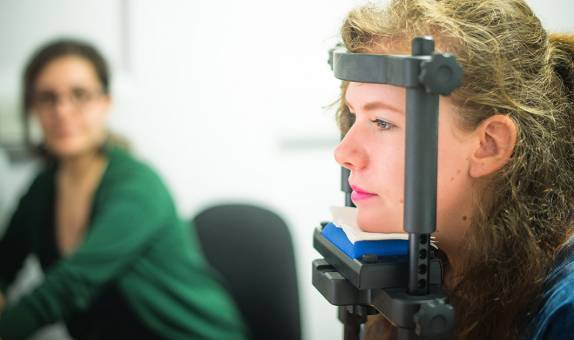Welcome to the Department of Psychology
Exploring human behaviour
The Department of Psychology at Kingston University is a vibrant hub for understanding human behaviour and the mind. Through critical thinking and empirical research, we explore factors that shape experiences, shedding light on cognitive processes, emotions, and social interactions.
Psychology addresses mental health, communication, and well-being, crucial in our changing world. It plays a pivotal role in understanding human behaviour and fostering healthier communities, and our mission is to equip students to contribute to a brighter future.
Opening doors to employment
Studying psychology opens doors to a diverse range of careers. Graduates can pursue roles in clinical psychology, counselling, or therapy to help individuals navigate mental health challenges. They may opt for research positions, contributing to our understanding of human behaviour. Psychologists also find opportunities in organisational settings, enhancing workplace dynamics and employee well-being. Psychology graduates excel in fields like education, marketing, and social services, applying their insights to improve interactions and outcomes.
The versatility of a psychology degree equips graduates for meaningful roles across various sectors, making a positive impact on individuals and communities alike.
A BPS-standard learning experience
We take pride in our British Psychological Society (BPS) accreditation, a testament to our commitment to excellence in psychology education. Our rigorous curriculum aligns with BPS standards, ensuring students receive a high-quality learning experience.
With a strong research ethos, we foster a culture of inquiry and discovery, encouraging students and faculty to explore cutting-edge topics in psychology. Our investment in state-of-the-art research laboratories and equipment empowers students to engage in hands-on research, enhancing their skills and understanding.
Kingston's Department of Psychology
What's it like to study psychology at Kingston University?
Change the world: our courses
We offer a range of undergraduate and postgraduate programmes in Psychology, which can also be combined with subjects outside the department. The teaching is research-led, wide-ranging and dynamic and consists of lectures, seminars, workshops, small group tutorials, as well as other assorted guided activities. Students can gain hands-on research experience via our volunteer researcher scheme and benefit from close links to specialist clinics and hospitals, schools, care homes and nurseries in the London area.
The teaching team is committed to providing the support you need to facilitate your transition to university life. We pride ourselves on our approachability and readiness to help and the personal tutor scheme, designed to help you from your very first week, is the embodiment of this commitment.
Undergraduate courses
The courses will give you a grounding in scientific psychology, as well as experience in the practical application of the discipline. It will also enable you to take the first step towards becoming a chartered psychologist. During your studies you will acquire data analysis skills, knowledge of statistical procedures and report-writing skills.
Postgraduate courses
Our postgraduate teaching is highly rated and dynamic, encompassing closely linked applied social science fields. This enables students at Kingston University to make the most of interdisciplinary research and teaching.
A rich research culture
Our academic staff spearhead active research groups that make a significant impact. Much of their work is globally esteemed, with state-of-the-art labs and facilities continually upgraded and expanded. We explore practical questions not only within our labs but also in real-world contexts.
Postgraduate students can collaborate with world-renowned researchers in areas like child psychology, clinical and health psychology, social psychology and with the Art, Cognition/Creativity and Emotion Research Group (ACErg). Our thriving community of PhD students adds depth and vitality to these research endeavours.
Investment in research and people
The psychology department has seen significant investment in research facilities, and has appointed outstanding researchers in a wide range of fields. The laboratories offer a variety of technical equipment (eye tracking systems -Tobii and Eyelink, VR headsets, actigraphy watches, BioPac, EEG, tDCS, behavioural telemetry), software (Qualtrics, MatLab, Eprime, SuperLab), and Observation Suite facilities.
A global impact in the world's media
Staff are passionate about their work and publish in renowned international journals (e.g. Proceedings of the National Academy of Sciences, The Journal of Experimental Psychology, Experimental Brain Research, Journal of Vision, Current Biology, Cognition, Psychopharmacology, PLoS ONE, The British Journal of Psychiatry). Many publications have achieved high national and international impact via mentions in Nature, The Sunday Times, BBC Radio 4, and Times Higher Education, among others.
A legacy of successful research funding
Over the last five years, the department has secured research funds in excess of £1m, from The Economic and Social Research Council, The Leverhulme Trust, The British Academy, The Qatar National Research Fund, The European Commission, Alcohol Research UK, The European Foundation for Alcohol Research, The Fetal Medicine Foundation, Sanofi-Pasteur, and The National Grid.
Empowering communities through research
The key beneficiaries of our research have been charities, local government, schools and social enterprises, and our goal has been to extend the reach of our research from the local community outwards. Some examples of projects can be found below:
Psychology news
Psychology events
Psychology Colloquia Series: Professor Marie Juanchich
Psychology Colloquia Series: Dr Anne van Hoogmoed
Young Scientists 2024
Psychology Colloquia Series: Dr Jayne Morriss
Staff in the department
Contact us
- Head of Department of Psychology: Dr Rachel Wilcock
- Contact the Course Administrator



